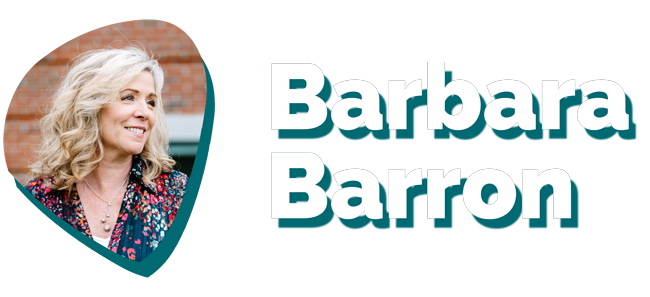It’s really understandable that non-profit Boards – in particular those at independent schools – may be downright scared of entering into a capital campaign.
It’s a pretty high-stakes game, one that gets increasingly public as it rolls out. Any cracks in the system are going to be exposed. Staff issues, poor record keeping, fiefdoms between departments, competing priorities. All will be laid bare when the campaign begins.
Of course, the upsides are huge. Greater capacity, whether it be in the form of new facilities, enhanced programs, larger endowments, expanded enrollment — and the grand-mommy of them all — progress towards the fuller delivery of the school’s inspiring mission. (You do have one of those, right?!)
But it’s not without risk. And not without cost. The prevailing wisdom is the campaign will cost somewhere between 5% and 10% of the total amount raised. That’s all in and over the life of the campaign. This amount includes expenses like architect fees, special events, design and printing, as well as any staffing and campaign counsel. Covers a lot but still, significant bucks on a venture with no hard guarantees.

So, it makes sense that the Board, tasked with fiduciary responsibility for the school’s very sustainability as well as its reputation, might be a little nervous when diving into this deep pool called a campaign. So how can we help? What are ways we as development professionals can provide information, training, and advice – as well as best practices – to help them overcome the jitters and embrace this important moment in the life of our school with gusto?
1. Let’s start by sharing some context: most schools mount capital campaigns every 8-12 years. Since trustees generally serve one or two, three-year terms, it’s possible, even likely, that a trustee might ably serve your school and never be part of a campaign. Lack of experience is what I see as the leading cause of jitters. Or can we just call it what it is: fear. We get that. When I train Boards about campaigns and the roles they will be asked to play, including helping solicit gifts, I remind them that the first time they drove a car, gave an important speech, or diapered a baby, they were pretty awkward and uncertain. By the 10th time, it was easier. By the 50th time, they have muscle memory; they have skill, even poise. Learning to ask for gifts is a special skill set. Not everyone will come to love it the way a few of us development wonks do. But everyone can gain ability and confidence in doing it. It requires practice, but can you think of anything important with high impact that doesn’t?
2. Training really helps. And not just a one-off experience. Sure, a retreat gives you the chance to create multiple practice sessions and to work through the natural self-consciousness everyone feels at first. But then keep at it, in digestible bites, over time. Suggest a short fresher be part of regular development committee and full Board meetings.
3. Give trustees a full understanding of the process. Capital campaigns are built upon a strategy and a sequence of actions that matter. The phases should not be rushed. Too often, Boards want to move quickly through the planning period. They are eager to rush the lifeblood stage that is the quiet phase to get to the more public moments. These are serious errors and will likely torpedo your campaign’s success. I tell clients almost daily that “you will never make up in the community phase what you fail to raise in the quiet phase.” This is because those top 15-25 gifts make or break your project. You must take the time to reach, cultivate, and solicit those families or individuals first. Help your trustees understand the process and feel fully invested in it so they will safeguard a smooth rollout.
Let’s step back a second and get some perspective. Why are Boards so often reluctant to start and then in a hurry to finish? Again, I believe it’s fear. The longer it takes to get to the finish line, the greater the chances something could go wrong. A project can (and will) get more expensive. A key donor family could have a reversal of fortune or mindset. An important member of the development staff could leave the school. A pandemic hits. There are simply no guarantees. Feeling at risk tends to make even the boldest among us a bit… well, jittery.
Have you subscribed to the newsletter yet? It only takes a minute.
Bottom line: the jitters or fear that most good trustees feel stems from a deep commitment and a huge sense of responsibility and caring about the school. Most admit freely that they love the school. That’s beautiful! The very last thing they want to risk is messing up because of their lack of ability. We can’t let that happen.
Far too often I hear, “I can’t possibly ask for money!” As if a volunteer is hitting up friends and strangers to pay their mortgage. We need to help them get past that and remember that they are asking for others — for the school, its students and teachers, and the bright future the campaign will help usher in. With the right project, a case for support that is compelling, and the vital training needed to speak passionately and accurately about the impact a gift will make, most trustees I know become ardent supporters and surprisingly good solicitors.
Fears can be conquered or at least quelled. Let’s get beyond the jitters by providing our key volunteers with the resources, support, and training they need to play the key roles we will ask them to play. If you need help setting up your Board for success, let me know. Together we can craft a fun and valuable training. We’ve got this.
Be well,
Barbara Barron

[email protected] // @BBAdvancement
My name is Barbara Barron, and I’m writing this blog to share advice on a profession that I adore.
I’ve been working in the field of Independent School Advancement for over 20 years. In that time, I’ve had the pleasure of creating and implementing successful fundraising plans and programs for so many incredible schools. I’ve had the privilege of seeing real growth at The Carey School, Marin Primary & Middle School, Woodside Priory, Crystal Springs, Presidio Knolls, Sage Ridge, and San Diego French American, and others. (Maybe we’ve met!)
Nothing makes me happier than seeing a struggling school start to thrive. My hope is that you’re here to make a positive change as well. I hope my advice can be a part of that change.
Shoot me an e-mail if you want to swap tips, or share your voice here.
Let’s do this, together.







